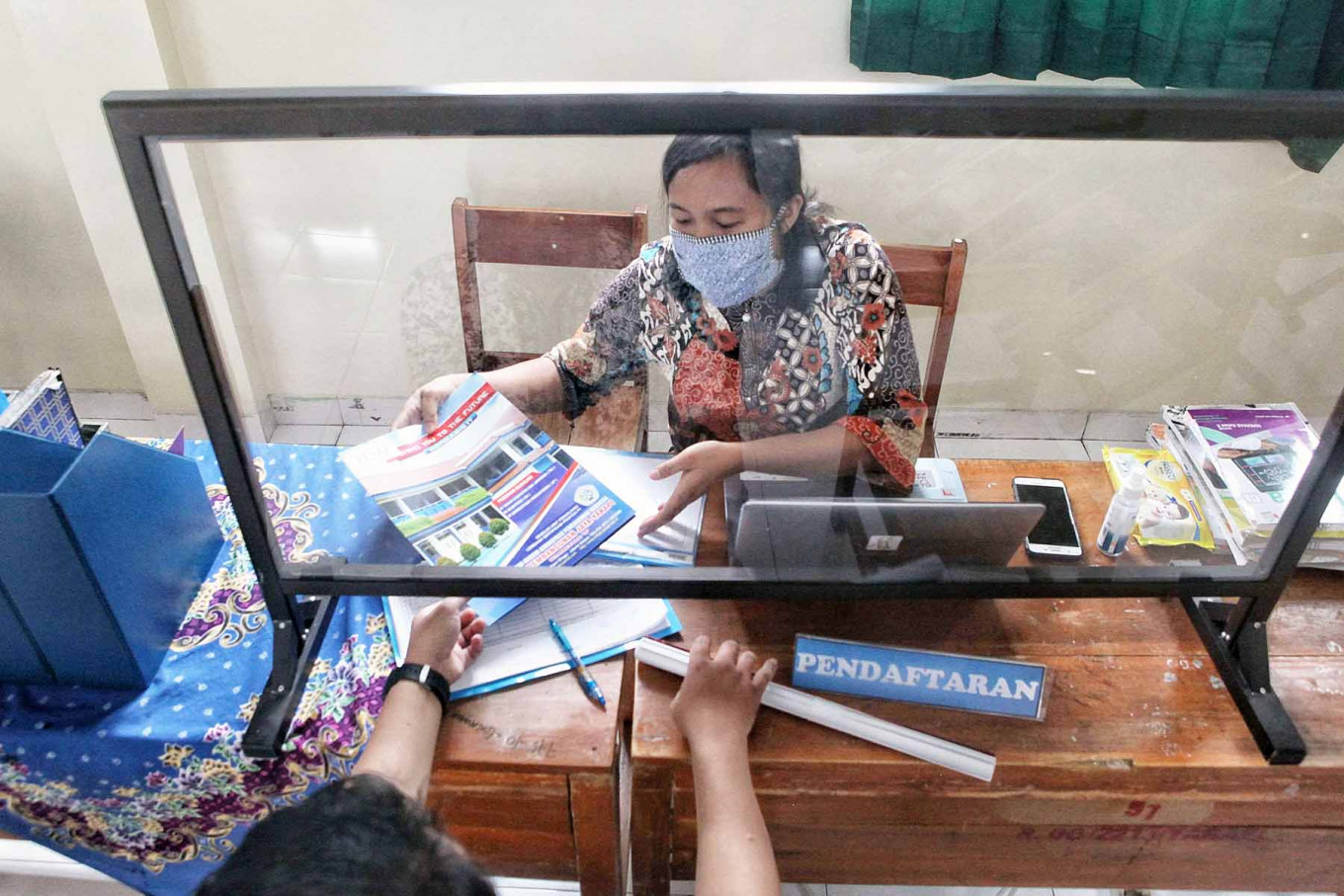Never too old to study
Developing nations known for their students’ achievements have established an education system where all children start their schooling at 7 to learn, among other soft skills, ethics, discipline, empathy with others, love for nature and animals and to build their character in the first few years of schooling.
Change Size
 An admissions officer at SMK Pembangunan Jaya-YAKAPI vocational school in Jakarta speaks to the parent of a prospective student on Thursday. The government plans to reopen schools at the start of the new academic year on July 13, after nearly four months since they were closed in early March as part of the COVID-19 social restrictions. JP/Seto Wardhana (JP/Seto Wardhana)
An admissions officer at SMK Pembangunan Jaya-YAKAPI vocational school in Jakarta speaks to the parent of a prospective student on Thursday. The government plans to reopen schools at the start of the new academic year on July 13, after nearly four months since they were closed in early March as part of the COVID-19 social restrictions. JP/Seto Wardhana (JP/Seto Wardhana)
T
he new student recruitment system in Jakarta has triggered protests as age now counts, more so than academic merit and the distance between children’s homes and the state schools in which they want to enroll. The new mechanism is a consequence of Education and Culture Ministerial Regulation No. 44/2019 signed last December.
Not all parents are aware of the new arrangement, or perhaps the government has not done enough to familiarize the changes made to the zoning system. Unsurprisingly, an infuriated parent called the new system a lie after her daughter was not admitted because she was younger than other students even though she lived quite close to the state school of her choice.
The ministerial regulation sets the minimum age of new elementary school students at 7 years old and the maximum age of students enrolling in junior high school and senior high school at 15 and 21, respectively. The reasoning behind the age rule is noble as it seeks to give children of poor families access to education and hence curb the dropout rate. Many such children have had to leave school to work to help make ends meet.
The Jakarta administration has allocated 40 percent of the total places in state schools to be filled by the zoning system, 5 percent for non-academic achievers, 25 percent for poverty-preference admissions, 20 percent for Jakarta-based high achievers and another 5 percent for non-Jakarta high achievers.
The city education agency has adopted the use of age in enrollment because age was a “neutral variable” that could not be manipulated, unlike the distance between home and school or a student’s marks. Among the documents required for registration is a birth certificate.
But for many the new student admission method is unfair, particularly after a number of students from prominent schools with good passing grades fell prey to the age rule.
Indeed, the zoning system, which aims to end elitism at certain schools favored by well-off families, has sparked controversies since its inception in 2016. Two years ago, some parents were found to have falsified their wealth and income information so that their children would be included in the special quota for underprivileged families in certain school districts.
Still the age rule is open to various interpretations, because of inconsistencies in the ministerial regulation. Although the minimum age for elementary school is set at 7 years old, children who turned 6 on July 1 can apply. Even those aged 5 years and six months on that date are allowed to register if they can prove their extraordinary talents and obtain approval from psychologists.
Notwithstanding the polemic, the minimum age could be made mandatory particularly for elementary school. Developing nations known for their students’ achievements have established an education system where all children start their schooling at 7 to learn, among other soft skills, ethics, discipline, empathy with others, love for nature and animals and to build their character in the first few years of schooling.
With the advancement of technology, the character of human resources will define the future of a nation.









